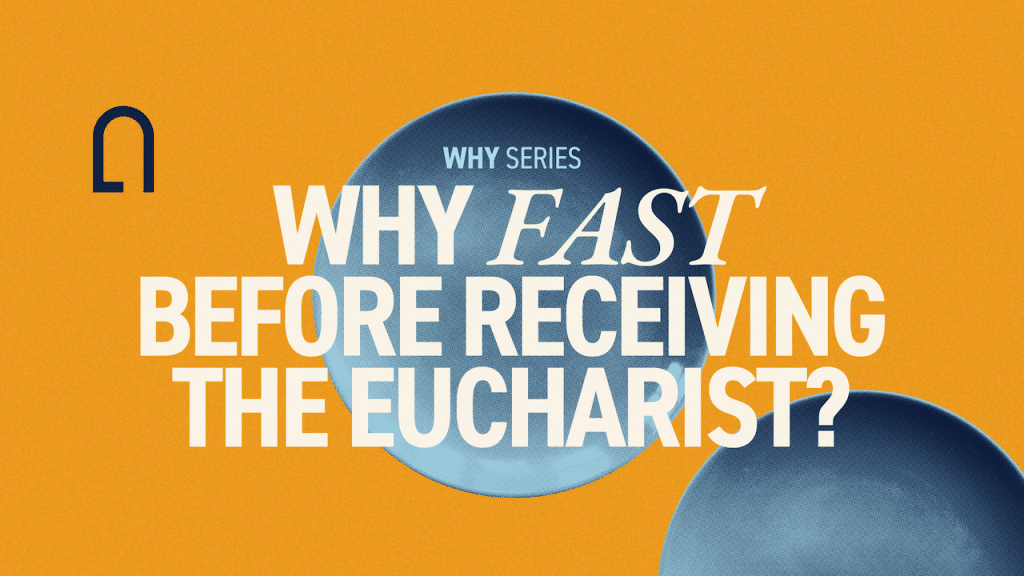Transcript
Why do we fast before receiving the Eucharist? I’m hungry [Music] Although this is not the best documented subject in the world, the Eucharistic fast can be traced all the way back to the 4th century. Not so long ago, the fast consisted of no food, no drink, not even water from Midnight until after Mass. Midnight Mass was a real hit back in those days. Early last century as Pope Pius X encouraged the laity to receive Holy Communion more frequently, the Church started relaxing the fast to make this easier. In 1953 Pope Pius XII started allowing people to drink water then in 1957 he reduced the fast to three hours before Mass. In 1964 Pope Paul VI further reduced the fast to one hour before receiving Holy Communion. And in 1973 he made the fast even more relax for the sick and their caregivers. So for those who are neither sick nor caregivers of the sick, we currently need to fast from food and drink the exception, being water and medication, for one hour before receiving Holy Communion. So basically if your priest is a long preacher you can be eating and drinking just about until the time you leave your house for church. I have to admit, compared to what the fast used to be we have gotten soft. Which is one reason why it is so important to do the fast and do it well. In our busy, closed-knit, anxiety-ridden world, we do plenty of penances most of which are spraying on us. It is a greater act of love however to voluntarily take on a Penance. It makes us more like Jesus, who voluntarily died on the Cross to save us. So why have a fast, a Penance so tied to the Eucharist? If I give you a bucket full of dirty water and ask that you fill it with clean soapy water, what would you do? First you would empty the bucket. So too to be filled with the Divine Life of Jesus, we first have to be emptied of self. Then we can be filled with the Divine Life of Jesus that comes to us in the Eucharist.
